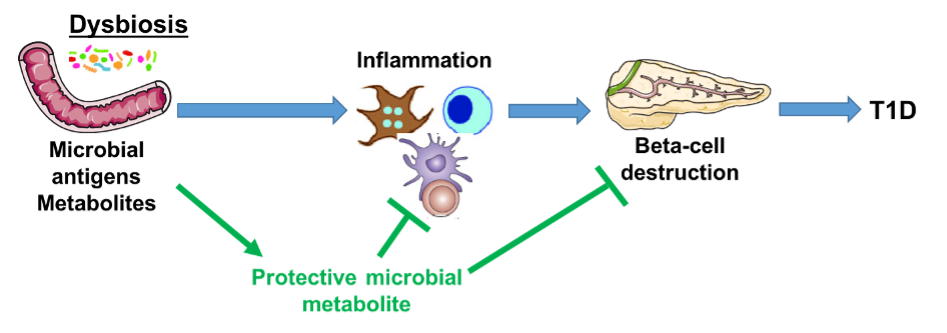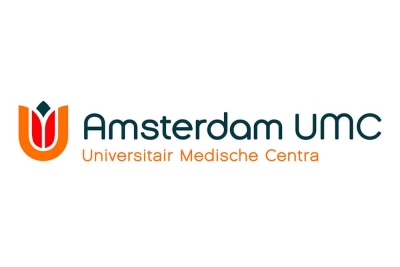Gut microbes can help fight type 1 diabetes
Type 1 diabetes (T1D) is one of the most prevalent chronic disease, caused by a progressive autoimmune attack directed to insulin-producing pancreatic beta cells, that ultimately results in life-long dependence on exogenous insulin. Although much research has focused on the genetic predisposition to T1D, the environmental factors that largely dictate T1D remain elusive. In this regard, recent studies showed that gut microbiome perturbations associate with T1D onset. Particularly we recently disclosed that faecal microbiota transplantations in new-onset T1D patients durably affect T1D progression, and identified a novel microbiota-derived metabolite (6-bromotryptophan, 6-BT) and a beneficial microbe (Desulfovibrio piger, D.piger) which associated with improved beta cell function and reduced inflammatory markers.
We, hence, hypothesize that both 6-bromotryptophan and D.piger are beneficial and may counteract T1D development. To prove this hypothesis, we employed an in vivo T1D model (non-obese diabetic NOD mice) and several in vitro assays with immune and pancreatic cell types.
Strikingly, we discovered that in vivo oral administration of the natural metabolite 6-BT and of the commensal D.piger resulted in higher proportion of pancreatic islets that were not infiltrated by immune cells. Moreover, particularly 6-BT administration greatly improved glucose metabolism at pre-diabetic stage and could maintain beta cell function even if treatment started in the late-stage of T1D. The dual function of 6-BT as an anti-inflammatory molecule in myeloid and lymphoid cells and as an insulin-secretagogue in pancreatic beta cells, makes this metabolite the perfect candidate for novel therapeutic approaches.
For this reason, we are currently carrying out the first safety/dose-finding human trial employing daily administration of 6-BT at escalating dosages in healthy individuals. Given the safety and tolerability shown so far, this trail will be followed by the first efficacy trial in patients with type 1 diabetes to establish the therapeutic potential of this natural metabolite.



